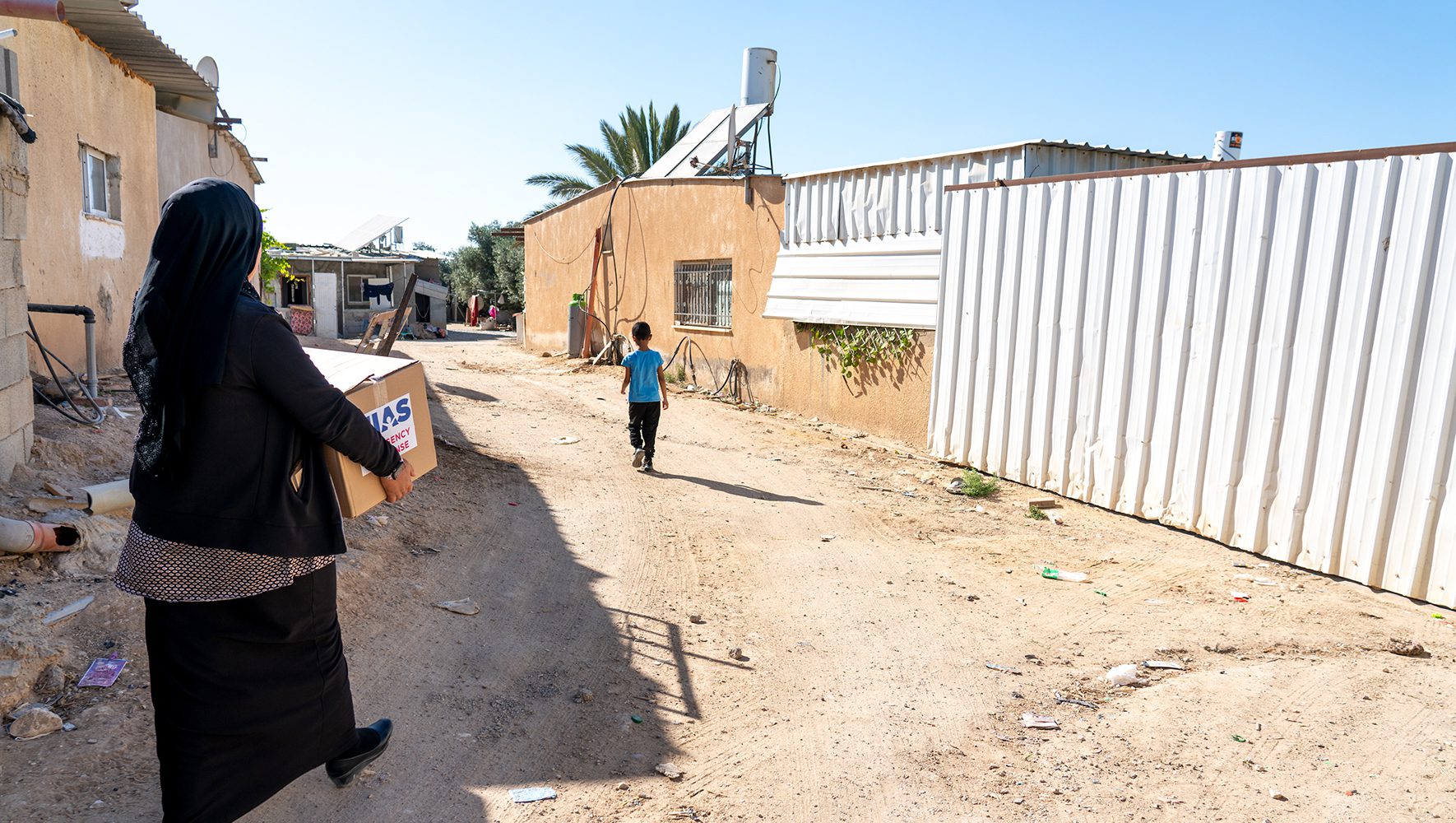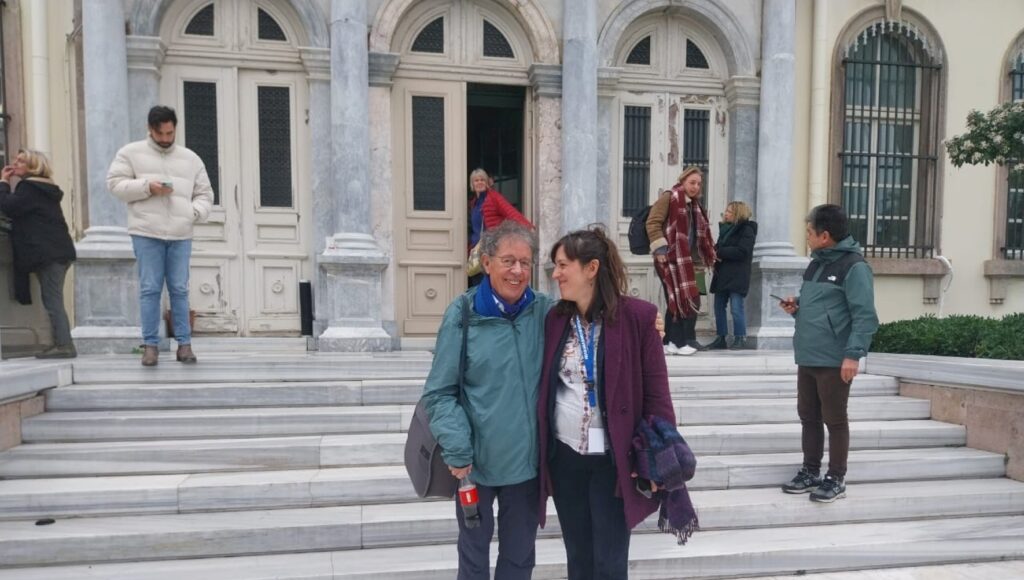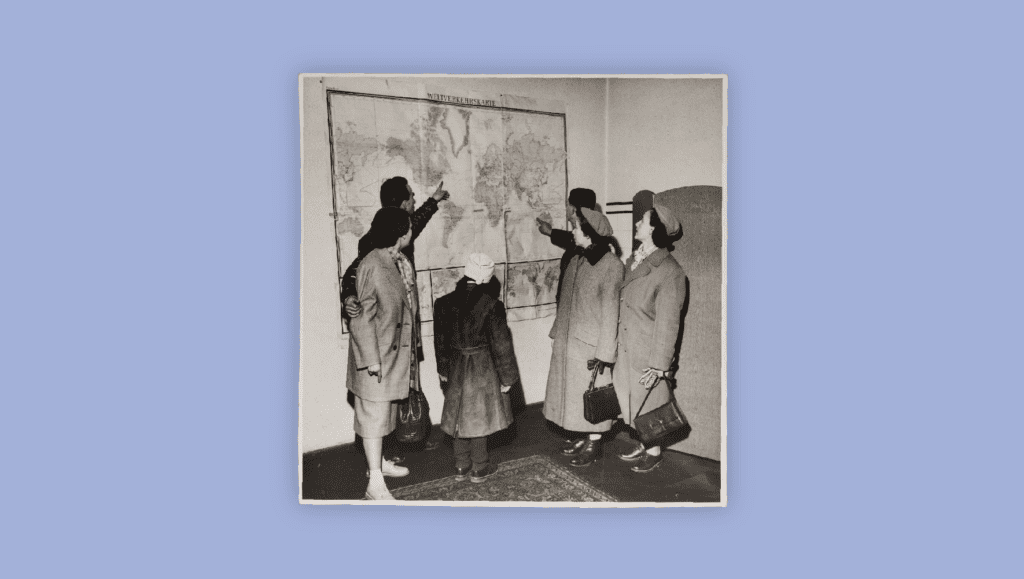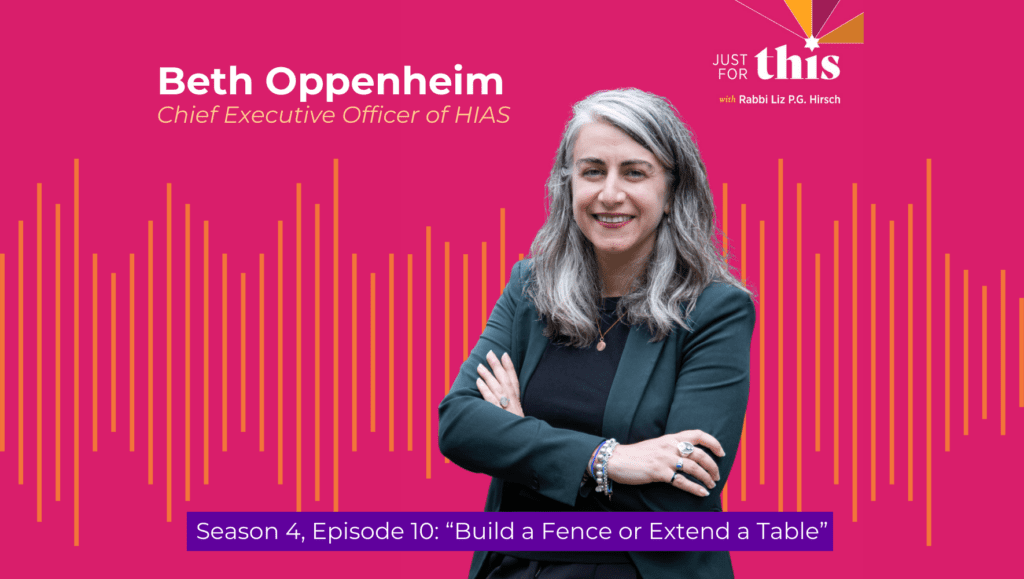
Two years. Twenty-four months.
It should be enough time for the dust to settle, for scar tissue to form. Enough time to begin to heal. Enough time to move on.
But it isn’t. The calendar may read 2025, but for many here in Israel, it is still October 7th, 2023, a day that began at 6:29 AM with the first sirens and has not ended since.
Because no scar tissue can form when wounds are still open, when our loved ones are still held captive, when explosions ring out every day in Gaza, when the suffering across the region continues unabated, when we are grieving active losses.
Something broke on that day. Our foundations cracked, and the crack has only deepened each day of these last two years. The ground beneath us all feels less stable. The continued captivity of hostages in Gaza keeps healing painfully out of reach. The ongoing military campaign, with the stated purpose of destroying Hamas, the organization that carried out the brutal attacks and has pledged to repeat them, has destroyed hundreds of thousands of innocent Palestinian lives and is destroying us.
Four months after October 7, 2023, I visited Nir Oz. The winter rains had washed away the smell of smoke and death. The paths were quiet, empty except for cats wandering among burned homes. Some walls bowed outward from the explosive charges, surrounded by small, beautiful gardens that somehow survived. A stack of plastic lawn chairs melted into a grotesque sculpture. Lego pieces scattered on the burned floor of a safe room. And the stories of the people who lived in these houses, some of them murdered, some taken hostage, some survived. A quarter of the members of Nir Oz were gone — murdered or taken. The mind cannot comprehend that, even two years later.
Standing there, among the ruins and silence, I remember thinking how fragile everything is, how quickly a place that held life, laughter, and routine could turn into ashes.
Months later, when the war with Iran broke out, that same sense of fragility returned, this time much closer to home. We all painfully realized how unprotected many of us are, both Israelis and the refugees who call this country home, how the older neighborhoods of Tel Aviv and other cities could not withstand the missiles that wreaked destruction on entire blocks. As a parent I was consumed by the basics: making sure the kids were near a shelter and that there was enough food in the house. They were the only things I felt I could control.
Sometimes we are afraid to feel. Because when you feel, you feel pain.
But what if I were a mother in Gaza? What if there wasn’t a shelter we could run to? What if I went out to search for food and never came back to my children?
As Jews, Israelis, and humanitarians, we grieve for Gaza too, and we fight and advocate for a population that is being starved, bombed, and displaced repeatedly. For the people, only a few miles away from my own community, who are denied access to medical care, to shelter, to food.
Sometimes we are afraid to feel. Because when you feel, you feel pain. Feeling this pain comes at a price. But it also reminds us of who we are.
And it is why we do the work we do, and why that work with refugees is more important now than ever. In a time when physical and emotional walls are being built, our work insists on doing the opposite: opening doors. Making sure that those who have lost everything can find safety, feel welcome, and access their basic rights.
Creating spaces of protection and belonging for others gives shape to our own humanity. It restores a sense of stability and meaning when the world around us feels unhinged. We stand with the refugee communities we serve, and they have shown us time and again that they stand with us.
Creating spaces of protection and belonging for others gives shape to our own humanity.
This work is not separate from the pain of October 7; to the contrary, it grows from it. Each act of protection and welcome is a quiet act of defiance against fear and hate. It reminds us that even when everything feels broken, we can still choose to repair. This is HIAS’ work all around the world, assisting people in the in-between moments of brokenness, providing compassion and empathy to people in a moment of need, standing first for humanity, regardless of race, ethnicity, nationality, or religion.
Every day of these past two years, that commitment — to feeling, to remembering, to seeing — has marked our path. So that one day, when this war finally ends, when the sun finally sets on October 7th, we can find our way home.
I write these lines with a sense of hope that a deal will be reached, that the end of the war is near. That the living hostages will return and reunite with their families, and that the dead will finally be laid to rest. That Palestinians in Gaza will receive the humanitarian aid they so desperately need to recover and rebuild. That we all will have space to heal.
We honor the memory of all who were lost on October 7th. We pray for the safe return of the hostages, for peace and safety for everyone whose life was shattered that day and by all the ones that followed. We plead that those blinded by hate will see again, and that those who cherish life will prevail.



